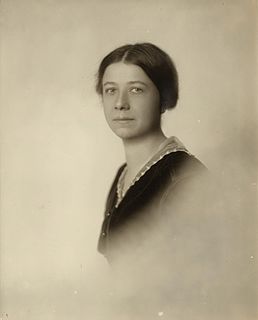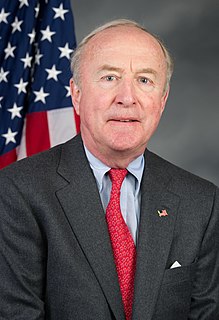A Quote by Kate Williams
It's the 21st century. It's untenable to suggest that women had no significance and no interest and that just because they didn't vote they had no relevance to the course of our history.
Related Quotes
For a few thousand years, women had no history. Marriage was our calling, and meekness our virtue. Over the last century, in stuttering succession, we have gained a voice, a vote, a room, a playing field of our own. Decorously or defiantly, we now approach what surely qualifies as the final frontier.
Despite the modern dogma to the effect that women were a subject sex until the nineteenth century 'emancipated' them from history, women in history had demonstrated strong wills and purposes, had made assertions, and had directed or influenced all human destiny, including their own, since human life began.
We had early on women having the right to vote, then women in the workforce during WWII, just going back in history, and then we had the higher education of women, and then women more fully participating in the economy and in business, the professions, education, you name the subject... but the missing link has always been: is there quality, affordable healthcare for all women, regardless of what their family situation might be?
Thanks to the leadership of Vice President Gore, we have a government for the Information Age, once again a government that is a progressive instrument of the common good, rooted in our oldest values of opportunity, responsibility and community, devoted to fiscal responsibility, determined to give our people the tools they need to make the most of their own lives in the 21st century, a 21st century government for 21st century America.
I think we're in a very distinctively different historical moment. I mean, I think that you had two things that were operating in the 1930s that seem to be, in many ways, to have been weakened or disappeared. And of course the beginning of the 21st century, I mean, you have - at one level you had massive social movements.
Leadership is the great challenge of the 21st century in science, politics, education, and industry. But the greatest challenge in leadership is parenting. We need to do more than just get our enterprises ready for the challenges of the twenty-first century. We also need to get our children ready for the challenges of the 21st century.
What had really caused the women's movement was the additional years of human life. At the turn of the century women's life expectancy was forty-six; now it was nearly eighty. Our groping sense that we couldn't live all those years in terms of motherhood alone was "the problem that had no name." Realizing that it was not some freakish personal fault but our common problem as women had enabled us to take the first steps to change our lives.
In the 20th century, we had a century where at the beginning of the century, most of the world was agricultural and industry was very primitive. At the end of that century, we had men in orbit, we had been to the moon, we had people with cell phones and colour televisions and the Internet and amazing medical technology of all kinds.
…I seemed to be lying neither asleep nor awake looking down a long corridor of gray half light where all stable things had become shadowy paradoxical all I had done shadows all I had felt suffered taking visible form antic and perverse mocking without relevance inherent themselves with the denial of the significance they should have affirmed thinking I was I was not who was not was not who.






































